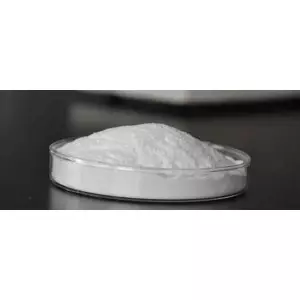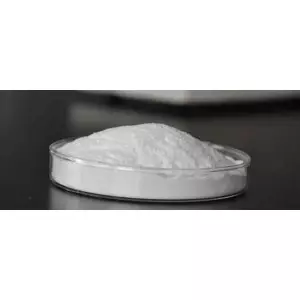- Home
- About Us
- Products
- Water Soluble Fertilizers
- Oil Drilling Chemicals
- Asphaltic Based Spotting Fluid
- Asphalt Sulfonate Sodium
- Asphalt Sulfonate Potassium
- Bentonite API
- Baryte / Barite
- Biocide (Amine/Quaternary Ammonium Based)
- Biocide (Aldehyde Based)
- Carboxy Methyl Cellulose (CMC-HV)
- Carboxy Methyl Cellulose (CMC-LV)
- Cationic Surfactant
- Chrome Free Lignosulfonate
- Chrome Lignosulfonate
- Corrosion Inhibitors
- Poly Anionic Cellulose (PAC-RG)
- Poly Anionic Cellulose(PAC-LV)
- Potassium Sulphonated Asphalt
- Potassium Chloride KCl
- Sodium Sulphonated Asphalt
- Spotting Fluid (Non Weighted)
- Spotting Fluid (Weighted)
- Sulphonated Asphalt
- Xanthan Gum (XCD Polymer)
- Coagulant Powder (CFCAl)
- Ammonium Bisulphite
- Calcium Bromide Liquid
- Calcium Bromide Powder
- Caustic Soda
- Defoamer Silicon Base
- Hydrated Lime
- Hydroxyethyl Cellulose
- Morpholine
- PAC HV
- Para Toluene Sulphonic Acid
- Partially Hydrolyzed PolyAcrylamide
- Polyamine
- Polyelectrolyte Anionic
- Polyelectrolyte Cationic
- Soda Ash (Sodium Carbonate)
- Sodium Bicarbonate (baking Soda)
- Sodium Bromide Liquid
- Sodium Bromide Powder
- Sodium Sulphite Liquid
- Sodium Sulphite
- Drilling Starch
- SALT
- Calcium Chloride 96%
- KOH
- Primary Emulsifier
- Secondary Emulsifier
- Gilsonite
- Shale Inhibitor
- Drilling Detergent
- Cloud Point Glycol
- E.P LUBE
- Rig Wash
- Nut Plug
- Phosphoric Acid
- Anthracite
- Ammonia Solution 25%
- Monoethanolamine
- Diethanolamine (DEA)
- Triethanolamine
- Acetic Acid
- Xylene
- Carboxymethyl Starch
- Caustic Soda Lye 42%
- Citric Acid
- Guar Gum
- Surfactant
- Sodium Silicate
- Iron Chelate
- EDTA Liquid
- 4NA EDTA Liquid
- H2S Scavenger Powder
- Filter Cake Breaker AA
- Glutaraldehyde
- Hexa Ethylene Tetra Amine
- High Pressure EP Lube
- Hydrazine Hydrate
- Latex Liquid
- 85% Magnesium Oxide Powder
- MEG
- DEG
- TEG
- Distilled Water
- Alcohol Defoamer
- Potassium Carbonate
- Sodium Metabisulfite
- Sodium Acid Pyrophosphate
- Sodium Formate
- Potassium Formate
- Sulfonated Asphalt
- Zinc Carbonate
- Water Treatment Chemicals
- Textile Speciality Chemicals
- Textile Pretreatment Chemicals & Auxiliaries
- Textile Dyeing Chemicals & Auxiliaries
- Textile Finishing Chemicals & Auxiliaries
- Textile Printing Chemicals & Auxiliaries
- Textile Washing Chemicals & Auxiliaries
- Textile Reactive To Reactive Discharge Chemicals & Auxiliaries
- Textile Specialty Chemicals & Auxiliaries
- Textile Pigments & Reactive Emulsion
- Updates
- Gallery
- Contact Us
Carboxy Methyl Cellulose (CMC) Sharjah
Details
Multi-Functional Additive for Industrial, Pharmaceutical, and Food-Grade Applications
In modern manufacturing, consistency, stability, and texture control are critical. Carboxy Methyl Cellulose (CMC) is a cellulose-derived polymer used across various sectors as a thickener, stabilizer, binder, or water-retention agent. This versatile compound offers high solubility, chemical stability, and adaptability in a wide range of formulations.
Key Functional Properties
CMC’s ability to modify the physical behavior of systems makes it valuable across industries.
1. Thickening Agent
Increases viscosity in liquids, pastes, and gels
Used in everything from toothpaste to textile printing
2. Stabilizer and Binder
Prevents phase separation in emulsions
Binds particles in ceramics, tablets, and detergents
Applications Across Industrial and Commercial Sectors
Due to its high adaptability, Carboxy Methyl Cellulose is utilized in a variety of manufacturing processes.
1. Food and Beverage Industry
Used as a stabilizer and thickener in ice cream, sauces, and baked goods
Improves mouthfeel and shelf stability
2. Pharmaceuticals
Functions as a binder, disintegrant, and film former in tablets
Also used in eye drops and oral suspensions
3. Oil Drilling Fluids
Controls viscosity and fluid loss in water-based drilling muds
Enhances borehole stability
Grades and Specifications
CMC is available in various grades depending on its purity, viscosity, and substitution level.
1. Technical Grade
Used in detergents, mining, construction, and other non-edible applications
2. Food Grade
High-purity CMC used in dairy, bakery, and sauces
Complies with E466 (food additive) standards
Storage, Packaging, and Handling
To retain performance, Carboxy Methyl Cellulose should be stored and handled correctly.
1. Storage Conditions
Store in a cool, dry place away from moisture
Shelf life up to 2 years when sealed properly
2. Packaging Options
Packed in 25 kg paper bags or HDPE-lined bags
Bulk packing available in FIBCs or jumbo bags
Frequently Asked Questions (FAQs)
Q1: Is Carboxy Methyl Cellulose natural or synthetic? CMC is semi-synthetic; it is derived from natural cellulose and chemically modified for enhanced functionality.
Q2: Can CMC be used in gluten-free baking? Yes, it acts as a gluten substitute by providing structure and elasticity to baked goods.
Q3: What is the difference between high and low viscosity CMC? High viscosity CMC is used for thickening applications, while low viscosity CMC suits binding and flow control.
Carboxy Methyl Cellulose Exporters In Ajman
Leveraging Our Vast Industrial Know-how, We Are A Reliable Supplier Of A Considerable Assortment Of Carboxy Methyl Cellulose (CMC). Manufactured To Meet High Standards, CMC Is Widely Used In Various Industrial And Commercial Applications, Including The Food, Pharmaceutical, And Construction Industries. Our Focus On Quality Ensures That Each Batch Is Produced With Preciseness, Offering Premium Performance, Consistency, And Dependability For Clients Across Various Industrial Sectors.Features: Continue
Carboxy Methyl Cellulose Supplier In Fujairah
We Manufacture India's Carboxymethyl Cellulose (CMC) - A Water Soluble Polymer Essential For Viscosity Control, Moisture Retention, And Texture Stabilization In Industrial And Commercial Applications.CMC Is Made From Refined Cellulose Treated With Chloroacetic Acid, Producing A White, Liquid Powder. It Dissolves Readily In Hot Or Cold Water, Forming A Clear, Stable Solution With Excellent Binding And Thickening Properties. It Is Non-toxic And Biodegradable And Widely Used In The Pharmaceutical Continue
Carboxy Methyl Cellulose Supplier In Dubai
With A Sincere Intention To Maintain And Enhance Our Reputation In The Industry, We Offer A Wide Range Of Carboxy Methyl Celluloses That Are Characterized By High Strength. These Carboxy Methyl Celluloses Are Manufactured Using Formula And Advanced Technology Under The Supervision Of Our Deft Professionals. Our Carboxy Methyl Celluloses Can Be Availed In Large Quantities Within The Stipulated Time Frame.Properties ValueAppearanceOff White To Creamish Free Flowing Powder Continue



